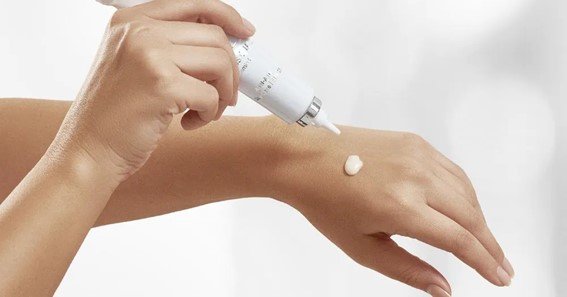Vitamin E is widely recognized for its antioxidant properties, often praised as a beneficial skincare ingredient. However, is vitamin E bad for your skin? While some people swear by its healing properties, others have experienced side effects. Understanding the vitamin E skin health risks and its potential impact on your skin can help you make an informed choice.
Understanding Vitamin E and Skin Health
Vitamin E is available in both oral supplements and topical creams, and each form has different effects. When applied topically, vitamin E is believed to help hydrate the skin, reduce scarring, and minimize oxidative damage. However, reactions can vary depending on skin type, application frequency, and product quality. Knowing the vitamin E benefits and risks for skin can be essential if you’re thinking of adding it to your skincare routine.
Potential Side Effects: Vitamin E and Skin Reactions
While many people tolerate vitamin E well, others may experience vitamin E side effects on skin. Here are some common issues to be aware of:
- Skin Sensitivity and Irritation: For those with sensitive skin, vitamin E can sometimes lead to redness, itching, or even a rash. This makes it crucial to test any new product containing vitamin E.
- Worsening of Acne: For those prone to acne, using vitamin E topically may clog pores and exacerbate breakouts.
- Allergic Reactions: Although rare, some people experience an allergic reaction to vitamin E, resulting in itching, swelling, or hives.
These potential vitamin E skin health risks are more likely to occur with higher concentrations of vitamin E or if it’s combined with other reactive ingredients.
Effects of Vitamin E on Skin Sensitivity
For individuals with sensitive or acne-prone skin, effects of vitamin E on skin sensitivity can be a concern. In some cases, using vitamin E may lead to skin irritation, especially for those with compromised skin barriers. Before applying it to large areas, always perform a patch test to determine how your skin reacts.
Vitamin E for Skin Conditions Like Acne and Eczema
Despite its risks, vitamin E can be beneficial for certain skin conditions when used correctly. Many find it helpful for issues like acne scarring or eczema, thanks to its anti-inflammatory properties. But vitamin E for skin conditions like acne and eczema should be used cautiously, as it can sometimes trigger breakouts or irritation if overused.
Choosing the Right Form: Vitamin E Topical Use vs. Oral Use on Skin Health
Vitamin E can be used both topically and orally, but each method has different effects. For example:
- Topical Use: This method delivers vitamin E directly to the skin and is generally used to reduce scarring or hydrate dry areas.
- Oral Use: Taking vitamin E supplements can promote skin health from within, but excessive doses may lead to unwanted side effects, including vitamin E impact on skin health.
When considering vitamin E topical use vs. oral use on skin health, consult a dermatologist to choose the safest and most effective method for your needs.
FAQ
1. Can vitamin E cause skin irritation?
Yes, vitamin E can cause skin irritation, especially in those with sensitive skin or allergies. It’s best to do a patch test before applying it widely.
2. Is vitamin E bad for acne-prone skin?
Vitamin E may worsen acne for some people, as it can clog pores. Those with acne-prone skin should use it cautiously and consult a dermatologist.
3. What are the benefits of vitamin E for scars?
Vitamin E is often used to reduce the appearance of scars due to its moisturizing and antioxidant properties, which may help improve skin texture over time.
4. Should I take vitamin E orally or use it topically for skin health?
Both methods have benefits, but topical application targets skin directly, while oral supplements affect overall skin health. Consult with a healthcare provider to determine the best method for your skin type.
5. Are there any risks of using vitamin E daily on the skin?
Using high doses or daily applications may lead to skin sensitivity, breakouts, or irritation for some individuals. Monitoring your skin’s reaction is crucial to avoid potential side effects.
Final Thoughts
So, is vitamin E bad for your skin? The answer depends on your skin type and how you use it. While vitamin E can offer benefits like hydration and scar reduction, it may also pose risks for those with sensitive or acne-prone skin. With careful use and by choosing the right form—topical or oral—you can decide if vitamin E is a beneficial addition to your skincare routine.










